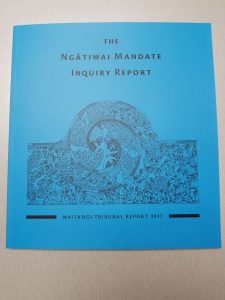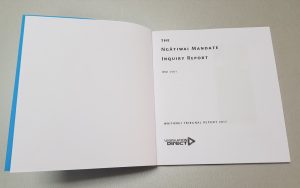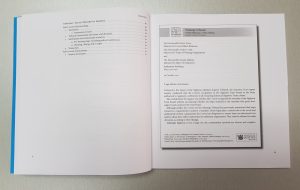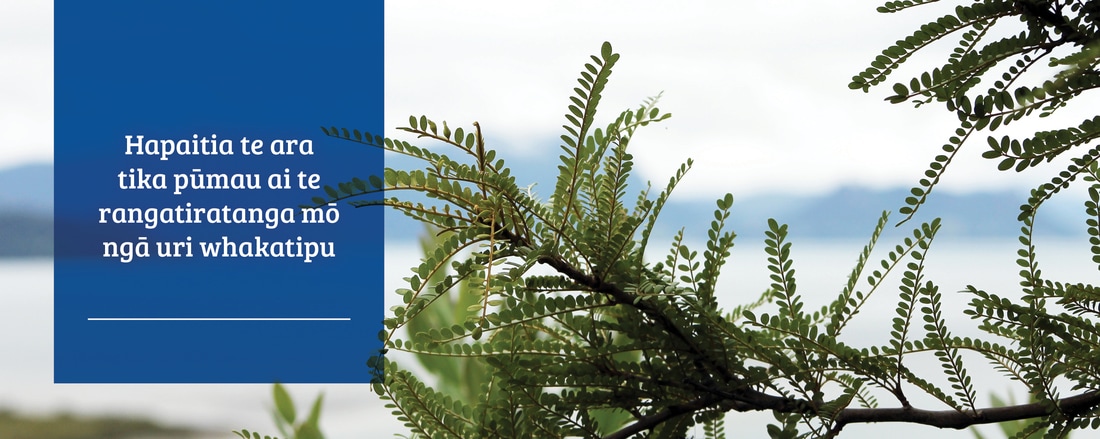Findings and Recommendations of the Waitangi Tribunal on the Ngātiwai Mandate Inquiry



The report makes the following findings:
- The Crown improperly pressured the Trust Board into responding to the Government’s timetable and settlement policies.
- The process of determining the claimant definition was unsatisfactory and incomplete at the time the Deed of Mandate was recognised by the Crown.
- The Crown recognised a Deed of Mandate that:
- Does not include mechanisms for individual hapū to consent to the mandate, nor to withdraw from it.
- Does not include mechanisms for individual hapū to consent to the mandate, nor to withdraw from it; empowers an entity, the Ngātiwai Trust Board, that as presently structured is not ‘fit for purpose’ to represent the hapū named in the Deed of Mandate, including the shared hapū; and
- Proposes supporting structures or advisory bodies that do not provide meaningful representation of hapū.
- There has been unequal treatment of hapū. Some were settled separately or released from the Deed of Mandate, as compared to other hapū who remain within the Deed of Mandate and have no mechanism to withdraw.
- There is no clear and robust Crown policy for dealing with the range of interests, including ‘shared’ interests that need to be accounted for in Treaty Settlement Mandates.
- Crown policy has had the effect of sharing hapū claims among mandated entities without ensuring that hapū are able to exercise tino rangatiratanga.
- In recognising the mandate of the Ngātiwai Trust Board to negotiate a settlement of the historical claims of Te Iwi o Ngātiwai without the support or consent of the hapū named in it, the Crown has breached the Treaty principle of partnership and the active duty of protection by failing to protect actively the tino rangatiratanga of the hapū included in the Deed of Mandate.
- The Crown also breached the principle of equal treatment in relation to the hapū who remain within the mandate and have no realistic prospect of being able to withdraw, vis a vis those hapū earlier allowed by the Crown to settle separately or that have been released from the mandate without explanation.
The report makes the following recommendations:
Mediation
- Mediated or facilitated discussions take place to debate the unsatisfactory elements of the Deed of Mandate (see “matters to be resolved” below).
- An agreed number of hui involving all parties, including the Trust Board, conducted by an agreed mediator, mediators, or facilitators, to seek agreed formulae or acceptable solutions.
- The Crown fund this reconciliation process.
- If agreement is reached on a pathway forward, then re-engagement with the Crown will be required to seek the Crown’s agreement to any change proposed to the Deed of Mandate.
- If successful, the Deed of Mandate should then be amended and re-submitted to the parties, including the twelve hapū listed in the Deed of Mandate (at section 12) for endorsement or rejection.
The longer route
- In the event of rejection by the parties, the Tribunal recommend withdrawal of the mandate and the setting up of a new entity such as a rūnanga or taumata, named and organised more inclusively and able to represent all hapū and groups in the inquiry district, whether or not they are Ngātiwai.
- The Crown should also fund this second process.
Matters to be resolved
In either case, the matters to be resolved through debate would be as follows:
- the claimant definition,
- an acceptance by the negotiating body that it represents Ngātiwai and other iwi or hapū of the takiwā,
- the representation of hapū including kaumātua on the negotiating entity,
- decision-making powers for hapū/kaumātua representatives,
- a non-exclusive name for the revised negotiating body,
- an agreed withdrawal mechanism for single hapū or groups of hapū,
- a disputes resolution mechanism, and
- a generally accepted model for the post settlement governance entity.
Suggestions
- The report suggests that the Trust Board could investigate the option of applying to the High Court for directions, or for a variation of the trust deed, to facilitate agreed changes to their structure where the thresholds for approval are unrealistically high.
- The report also suggests that any hapū or group of hapū that has participated in the process in good faith, and still wishes to withdraw at the end of it, should be assisted by the Crown to settle their Treaty claims as soon as possible, including assistance to collectivise into large natural groups and to obtain mandate(s) from their members.
Finally
- The report goes on to say that the Crown needs to take steps to ensure that its policies concerning ‘shared interests’ in negotiations are robust enough to avoid the situation that has arisen in this inquiry, where hapū claims are shared among mandated entities without ensuring that hapū are able to exercise tino rangatiratanga within any mandate.
- They also say that the Crown needs to ensure that the application of its settlement policies meets its objective which is to achieve a robust, durable, and fair settlement, and a restoration of its Treaty relationship with Maori.
Next Steps
The Ngātiwai Trust Board made a decision to pause its Treaty Settlement over a year and a half ago while the urgent hearing into its mandate took place and while we waited for the tribunal to release its Report.
Ngātiwai Trust Board Chairman, Haydn Edmonds says, “The Report from the Waitangi Tribunal has been out for over a month now, and we will continue to remain in this holding phase with our Settlement as we work through it. We are going to take as much time as we need, and early in the new year we will hui with our people about what this report means for us, and listen to what our people say is the pathway forward for a Ngātiwai Settlement.”
“We are very excited that we now have a new Government, who has promised a fresh approach. I have advised the Minister of Treaty Settlements, that respectfully, I do not want to meet with him right now about the pathway forward for a Ngātiwai settlement until we have taken the time to understand what our whānau, hapū and iwi want. However long that takes, we will take that time to ensure we understand what that pathway forward looks like for our people.”
“We hope that the new Minister, Andrew Little, will look closely at the issues we have been struggling with in relation to the previous Government’s overlapping claims process which were creating divisions between iwi. On that matter the Board has had to resort to filing an urgent hearing application of its own against the Crown, particularly in relation to redress the Crown has offered some of the Hauraki iwi on Aotea (Great Barrier Island).”


